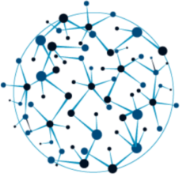Two submission deadlines: 28 August, and 15 September (AOE)
Acceptance notification: 1 September (for abstracts submitted by 28 August), and 19 September
We invite submissions of up-to 2 page abstracts describing late-breaking developments in the field of data science, statistical machine learning, interdisciplinary research, and related areas. The scope of this track spans the following:
- PhD research with fresh perspectives on topics around data science and advanced analytics
- New timely findings in any topic of data science and advanced analytics, including industry, application, or research, which were not yet available at the paper submission deadline
- Journal-to-conference: A short summary of recent work appearing in a major journal or conference on any topic of data science
Submitted abstracts will be lightly reviewed for relevance and standards, and accepted abstracts will be scheduled for presentation at dedicated special sessions at the conference.
Submitted abstracts are not for archival publication in the proceedings. Instead, the purpose is to amplify the reach and visibility of the research beyond the traditional archival venues, and to foster new networking opportunities at all career stages.
To submit an Abstract, click HERE.
Formatting
Submissions should include author names and institutions. It is recommended to use the IEEE conference templates to format your abstract.
If you are submitting a summary of your joural paper, then please use the same paper title with an ‘extended abstract’ addon and a footnote showing the journal paper. This will enhance the visibility and reach of your work.
Registration requirements
At least one author of each accepted abstract is required to register by the deadline. Abstracts without a registration will not be included in the conference program. Contrary to papers for the conference proceedings, a student registration is sufficient to register and Abstact / Extended Abstract through this track.
Presentation at DSAA’25
At least one author of each accepted abstract is required to present the work at the conference.
Accepted Journal and Special Track Papers
The following papers accepted from the MLJ track with DSAA’2024 (https://dsaa2024.dsaa.co/cfp-mlj-journal-track.html) are automatically accepted in this track for presentation at DSAA’2025. When submitting your 2-page summary of these journal papers, please use the same paper title with an ‘extended abstract’ addon and a footnote showing the journal paper. Submited abstracts of these works will be publicised on the conference website for greater visibility. Authors may register to DSAA’25 at the student rate to present these works at the conference.
Journal Track with Machine Learning
- Ziying Li (The University of Sydney); Junbin Gao (University of Sydney, Australia)*. “Heterogeneous Graph-based Polarization Detection (HG-PD): a Model Balancing Crude Processing with Rich Semantics”
- Zhiwen Luo (Concordia University); Wentao Fan (Beijing Normal University-Hong Kong Baptist University United International College (UIC))*; Manar Amayri (Concordia university); Nizar Bouguila (Concordia University). “High-Dimensional Axial Data Clustering via Watson Mixture Variational Autoencoder”
- Junhan Wen (Delft University of Technology)*; Thomas Abeel (Delft University of Technology); Mathijs de Weerdt (Delft University of Technology). “Performance and Interaction Assessment of Neural Network Architectures and Bivariate Smart Predict-then-Optimize”
- Roohollah Roohollah (Toronto Metropolitan University); Morteza Zihayat (Toronto Metropolitan University)*; Kuan Feng (IBM Cloud Pak for Multicloud Management Development); Jason Adelman (IBM Cloud Pak for Multicloud Management Development); Fattane Zarrinkalam (University of Guelph); Ebrahim Bagheri (Ryerson University). “Jointly Learning Content-Network Representations for Collaborative Expert Discovery”
- Umer Siddique (University of Texas at San Antonio)*; Abhinav Sinha (University of Cincinnati); Yongcan Cao (University of Texas at San Antonio). “Learning Fair Policies in Multi-Objective Preference-based Reinforcement Learning”
Special track on Emerging Data Science Advances
- Samuel Stocksieker (Institut de Mathématiques de Marseille / Aix-Marseille University)*; Denys Pommeret (Institut de Mathématiques de Marseille / Aix-Marseille University / CNRS); Arthur Charpentier (UQAM). “Delving into Deep Smoothed Bootstrap: Application in Imbalanced Regression”
- Sarwan Ali (Georgia State University)*. “Murmur2Vec: A Hashing Based Approximate Solution For Embedding Generation Of COVID-19 Spike Sequences”
- Mert Cakiroglu (Indiana University); HASAN KURBAN (TEXAS A&M)*; Elham Buxton (UIS); Mehmet Dalkilic (Indiana University). “Novel De Bruijn Graph Embeddings for Enhanced Time Series Forecasting”
- Jie Ou (University of Electronic Science and Technology of China); Xiaowang Li (University of Electronic Science and Technology of China); Yueming Chen (University of Electronic Science and Technology of China); Jiahong Qian (Huawei Technologies Co. Ltd); Teng Su (Huawei Technologies Co. Ltd); Tian Wenhong (University of Electronic Science and Technology of China)*. “Efficient and Automatic 3D Parallelism Strategies Search via Contrastive Reinforcement Learning Pretrained Neural Networks”
- Seungeon Lee (DGIST); Sang-Chul Lee (DGIST)*. “TablEye: Few-shot tabular learning in the Image domain”
- Manuel Dileo (University of Milan)*; Matteo Zignani (Università degli Studi di Milano); Sabrina Gaito (Università degli Studi di Milano). “A discrete-time deep learning framework for temporal heterogeneous networks forecasting”
- Sónia Teixeira (INESC TEC)*; Rita Nogueira (INESCTEC); Joao Gama (INESC TEC – LIAAD). “Unveiling Fairness, Sustainability and Performance of Causal Discovery”

